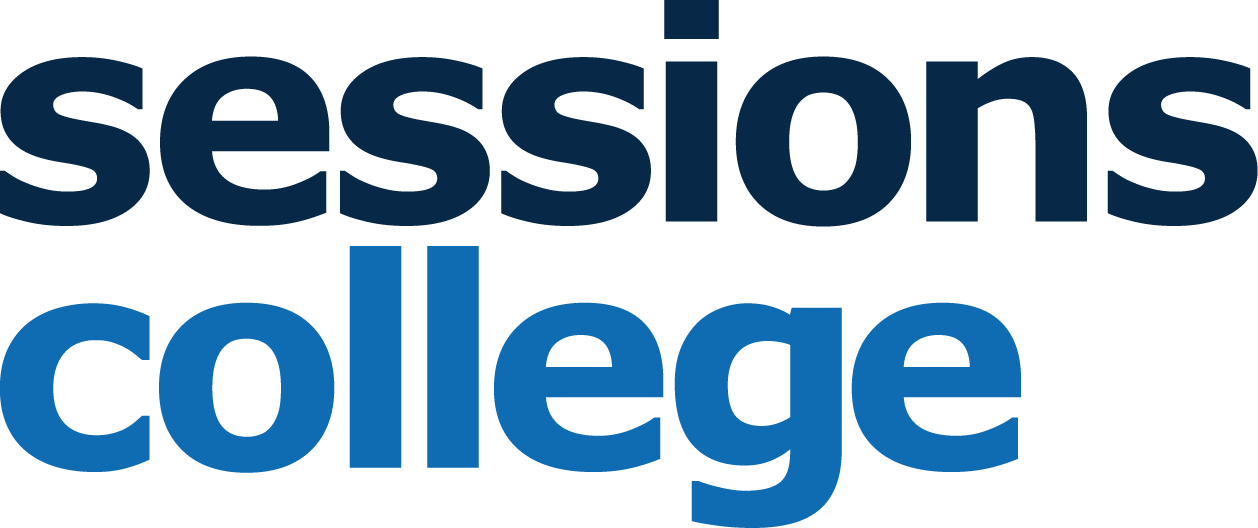How to Become a Medical Office Specialist in Hawaii

Want personalized recommendations?
Let's match you to the right program

Dreambound invites you to embark on a fulfilling career as a Medical Office Specialist in the beautiful state of Hawaii. In this guide, we will explore the necessary steps to become a Medical Office Specialist, including understanding the role, educational requirements, licensing and certification, the job market, and helpful tips for landing your first job. Whether you are just starting your journey or looking to advance your career, this article will provide you with valuable insights and guidance.
Article continues after recommendations
Recommended for you
Understanding the Role of a Medical Office Specialist
As a Medical Office Specialist, you play a vital role in ensuring the efficient operation of medical offices and healthcare facilities. Your responsibilities encompass a wide range of administrative and clerical tasks. You will be the first point of contact for patients, assisting with appointment scheduling, maintaining medical records, billing and coding, and providing excellent customer service.
Working as a Medical Office Specialist requires a deep understanding of the healthcare industry and the ability to navigate complex systems. You will need to be familiar with various medical software and electronic health records, as well as possess knowledge of medical terminology and coding systems. This expertise allows you to effectively communicate with healthcare professionals and accurately document patient information.
Key Responsibilities of a Medical Office Specialist
Medical Office Specialists are responsible for managing office workflow and ensuring patients receive optimal care. Some of the key responsibilities include:
-
Answering phone calls and scheduling appointments: When patients call the medical office, you will be the friendly voice on the other end of the line. You will assist them in scheduling appointments, taking into consideration their availability and the urgency of their medical needs. Your ability to efficiently manage the appointment schedule will help ensure that patients receive the care they need in a timely manner.
-
Maintaining patient records and managing medical documentation: Accurate and organized medical records are essential for providing high-quality healthcare. As a Medical Office Specialist, you will be responsible for maintaining patient records and managing medical documentation. This includes updating patient information, recording medical history, and ensuring that all records are complete and up-to-date. Your attention to detail and strong organizational abilities will play a crucial role in maintaining the integrity of patient records.
-
Handling insurance billing and coding: Medical billing and coding can be complex and time-consuming. As a Medical Office Specialist, you will be responsible for handling insurance billing and coding, ensuring that healthcare providers are properly reimbursed for their services. This requires a deep understanding of insurance policies and procedures, as well as knowledge of medical coding systems. Your proficiency in these areas will help streamline the billing process and minimize errors.
-
Coordinating referrals and authorizations: In some cases, patients may require specialized care or additional services that are outside the scope of the medical office. As a Medical Office Specialist, you will be responsible for coordinating referrals and authorizations, ensuring that patients have access to the care they need. This may involve communicating with other healthcare providers, obtaining necessary documentation, and following up to ensure that referrals are processed in a timely manner.
-
Assisting with patient intake and check-out process: When patients arrive at the medical office, you will be responsible for assisting with the intake process. This includes verifying patient information, collecting necessary paperwork, and ensuring that patients are comfortable while they wait to see the healthcare provider. Additionally, you will assist with the check-out process, ensuring that patients understand any follow-up instructions and scheduling any necessary follow-up appointments.
Skills Required for a Medical Office Specialist
To excel in this role, you will need a diverse set of skills including:
-
Excellent communication and interpersonal skills: As a Medical Office Specialist, you will interact with patients, healthcare providers, and other staff members on a daily basis. Excellent communication and interpersonal skills are essential for effectively conveying information, resolving conflicts, and providing exceptional customer service. Your ability to build rapport and establish trust with patients will contribute to a positive healthcare experience.
-
Attention to detail and strong organizational abilities: Managing medical records, scheduling appointments, and handling insurance billing require a high level of attention to detail and strong organizational abilities. You will need to accurately record and maintain patient information, ensure that appointments are scheduled correctly, and carefully navigate insurance procedures. Your ability to stay organized and pay attention to the smallest details will contribute to the smooth operation of the medical office.
-
Proficiency in medical software and electronic health records: Medical offices rely heavily on technology to manage patient information and streamline administrative processes. Proficiency in medical software and electronic health records is essential for efficiently performing tasks such as scheduling appointments, updating patient records, and generating reports. Your ability to navigate these systems with ease will enhance your productivity and contribute to the overall efficiency of the medical office.
-
Knowledge of medical terminology and coding systems: Medical terminology and coding systems are the language of healthcare. As a Medical Office Specialist, you will need a solid understanding of medical terminology to effectively communicate with healthcare professionals and accurately document patient information. Additionally, knowledge of coding systems such as ICD-10 and CPT is necessary for proper insurance billing and coding. Your familiarity with these systems will help ensure that healthcare providers are properly reimbursed for their services.
-
Ability to work well under pressure and multitask: Working in a medical office can be fast-paced and demanding. Patients may have urgent medical needs, healthcare providers may require immediate assistance, and administrative tasks may pile up. The ability to work well under pressure and multitask is crucial for success as a Medical Office Specialist. Your ability to prioritize tasks, stay calm in stressful situations, and effectively manage your time will contribute to the smooth operation of the medical office.
Educational Requirements for a Medical Office Specialist in Hawaii
In order to become a Medical Office Specialist in Hawaii, you must meet certain educational requirements. While a bachelor's degree is not mandatory, it can enhance your employment prospects and open up opportunities for career advancement.
Necessary Degrees and Certifications
To enter the field, a high school diploma or equivalent is typically the minimum requirement. However, pursuing an associate degree or a certification program in medical office administration can provide you with specialized knowledge and skills to stand out in the competitive job market.
Recommended Courses and Training
When choosing educational programs, look for courses that cover topics such as medical office procedures, healthcare ethics, medical billing and coding, electronic health records management, and medical terminology. Dreambound offers comprehensive training programs designed to equip you with the necessary knowledge and expertise to succeed as a Medical Office Specialist.
Licensing and Certification in Hawaii
While Hawaii does not require a specific license to work as a Medical Office Specialist, obtaining professional certification can greatly enhance your employability and demonstrate your commitment to excellence.
Process of Obtaining a License
One widely recognized certification in the field is the Certified Medical Administrative Assistant (CMAA) credential offered by the National Healthcareer Association (NHA). To earn this certification, you must pass an examination that tests your knowledge in medical office procedures, medical billing and coding, and healthcare regulations.
Maintaining and Renewing Your Certification
Once you obtain your certification, it is important to stay up-to-date with the latest industry standards and best practices. The NHA requires CMAAs to renew their certification every two years by completing continuing education courses. Dreambound offers a variety of resources and professional development opportunities to help you maintain your certification and continue to grow in your career.
Get courses selected just for you
Try our powerful search engine
Article continues after recommendations
Job Market for Medical Office Specialists in Hawaii
The job market for Medical Office Specialists in Hawaii is promising, with a steady demand for skilled professionals in healthcare settings. Medical offices, hospitals, clinics, and other healthcare facilities all require the expertise of trained specialists to ensure smooth operations.
Current Job Opportunities
Medical Office Specialists can find employment opportunities in a variety of settings, including private practices, hospitals, outpatient facilities, and government agencies. With Hawaii's growing aging population and advancements in medical technology, the need for qualified specialists is expected to continue to rise.
Future Trends and Opportunities
With the rapid digitalization of healthcare, Medical Office Specialists proficient in electronic health records management and medical coding software will be in high demand. Keeping up with technological advancements and regularly updating your skills will be essential to staying competitive in the field.
Tips for Landing Your First Job as a Medical Office Specialist in Hawaii
Securing your first job as a Medical Office Specialist requires a combination of a strong resume and effective interview skills.
Building a Strong Resume
When crafting your resume, highlight relevant skills and experiences, such as knowledge of medical terminology, proficiency in medical software, and customer service abilities. Include any internships, volunteer work, or specialized training that showcases your dedication to the field. Dreambound offers resume-building workshops to help you create a standout resume that impresses potential employers.
Acing the Interview
During the interview process, demonstrate your communication skills, attention to detail, and ability to handle challenging situations. Research common interview questions and practice your responses to confidently articulate why you are the ideal candidate for the position. Dreambound offers interview preparation sessions to sharpen your interview skills and increase your chances of success.
Final Thoughts
By following these steps and leveraging Dreambound's programs and classes, you can embark on a rewarding career as a Medical Office Specialist in Hawaii. Start taking the necessary steps today to achieve your professional goals and make a positive impact on healthcare in the beautiful islands of Hawaii.
Dreambound's extensive guides dig into the specific requirements and challenges that are different for each city in the US. Check out some of our other guides below:
- Medical Office classes near me in Baltimore
- Medical Office classes near me in Dayton
- Medical Office classes near me in New Orleans
- Medical Office classes near me in Pittsburgh
- Medical Office classes near me in Washington
Contemplating a transition in your career or exploring various professional paths? Dreambound has written comprehensive guides on nearly every type of program to aid you in your decision.

Athena is Co-founder and CEO of Dreambound.



